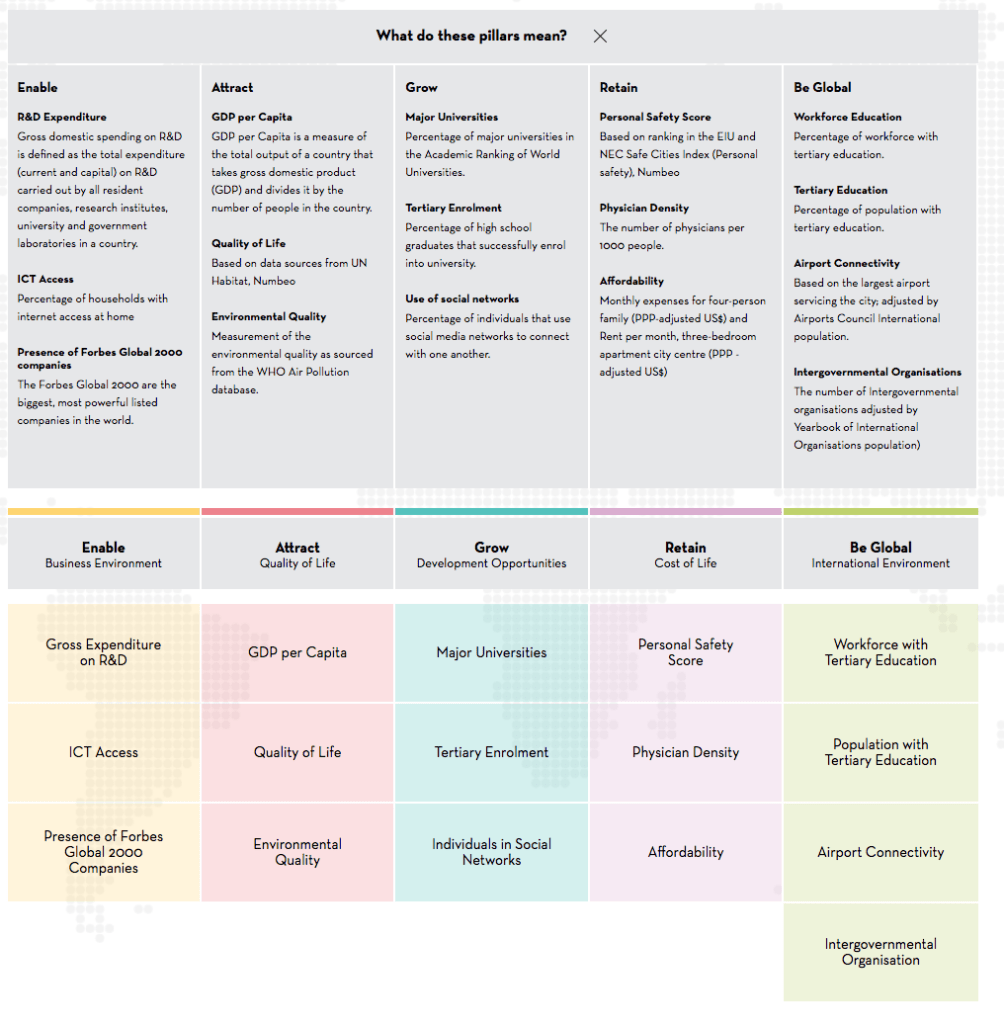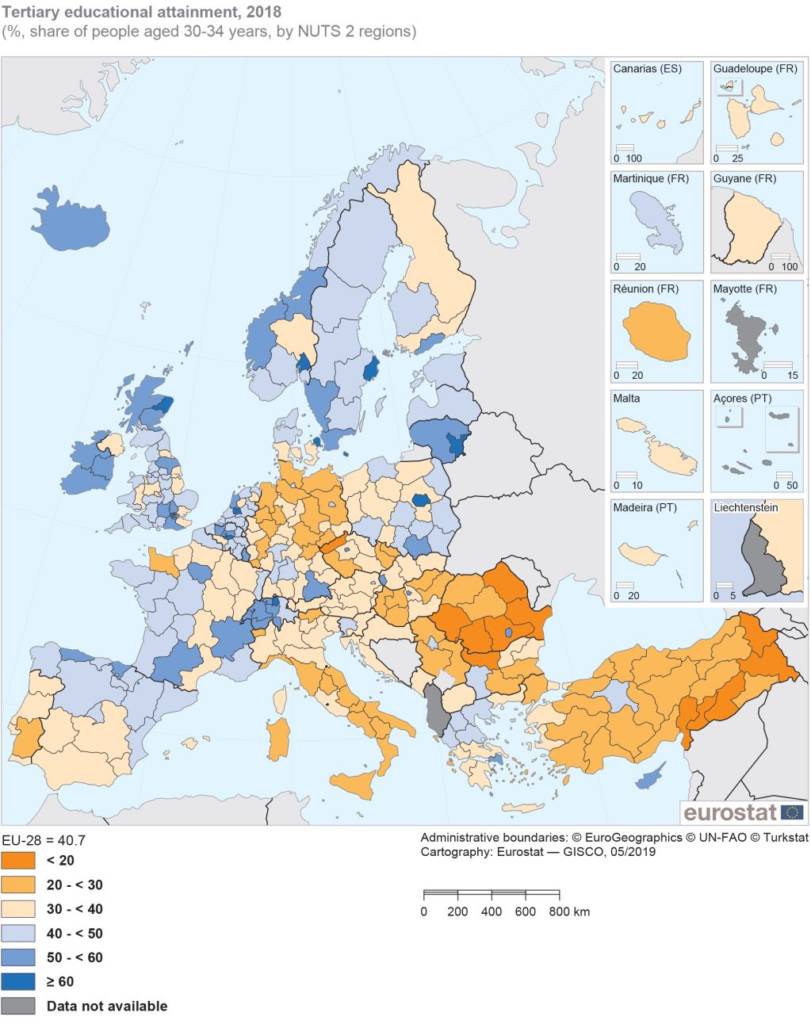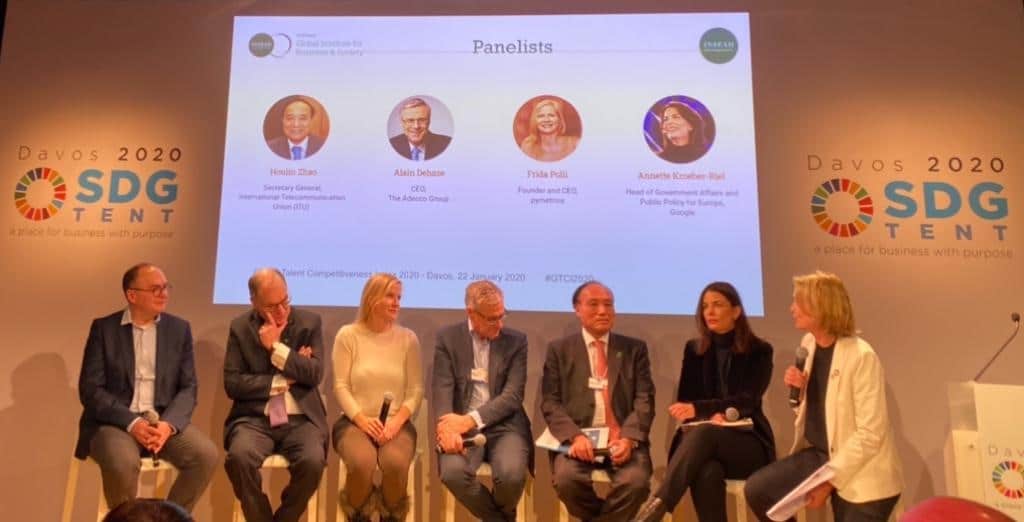A year ago, we wrote an entry on how the Global Talent Competitiveness Index Report (GTCI), whose purpose is to analyse the state of the states as regards their competitiveness to talent recruiting and the future of work, has been presented at the Davos Forum for the last seven years. Recently, the report broadened its focus, or perhaps we should say narrowed it, by including a section performing the same analysis on cities and regions in the last four editions.
In the 2019 report, Bilbao entered into the cities ranking, placing 44 out of 114. The fact that it was included, and the results themselves, gave us a lot of food for thought.
And now we’re in the midst of the 2020 Davos Forum, and with it, the 2020 edition of the GTCI. Alongside the index of states and cities, we’ve also come across a very pleasant surprise: a chapter on an important Basque project.
Bizkaia Talent, a role model
In this edition, the theme was “Global Talent in the era of Artificial Intelligence”, and the GTCI has devoted a chapter of its report to the handling of talent via AI. For their case study on this, they used Bizkaia Talent, both for its innovative model, which develops technological tools that are unique in the world, and for its ability to offer solutions based on personal contact, under the inclusive motto “Be Basque“. (pages 101-108 of the report).
The City Index
The number of cities in this edition has again risen, to 155, and Bilbao has dropped to position 83. We still can’t help but feel that we’re in the elite: just being on the list is a recognition of success, and a success in and of itself.
To carry out the analyses of the cities, the index was based on five pillars: the ability to enable, attract, grow, and retain talent, and using that to create global knowledge. All of these are based on socio-economic indicators.


A breakdown of Bilbao’s position in each of those areas shows us the Basque city’s (and the Basque Country’s) strengths and weaknesses, because, as we like to say, the good and bad things found in Bilbao are the good and bad things that can be found in our nation as a whole, and vice-versa.


Strengths
Our biggest strength is in Bilbao’s, and the Basques’, ability to create an environment that retains the talent we create and attract.
Our 3rd place ranking among the 155 cities is based on an evaluation of the level of personal security, healthcare, mobility, and the cost of living.
Weaknesses
Our weaknesses are focused on our ability to attract and grow talent (columns 3 and 4, respectively).


It’s obvious that our position in the talent creation pillar, where we’re weakest, is due in no small part to the level and international recognition of our universities.
Of the three fields that figure into this part of the breakdown, in the one corresponding to “percentage of high school graduates who successfully enter university”, our country’s position is excellent, leading, both in Europe and the world.
But the level of our universities is quite a different matter.
In 2017, we wrote an entry about the Academic Ranking of World Universities (ARWU), which situated the University of the Basque Country somewhere between 400-500. In 2019, the situation hadn’t changed. And it’s the only one to appear.
This is an area where we Basques really need to focus some energy on, in order to achieve significant improvement. This was an idea we brought up back in 2017 after the publication of the Times Higher Education 2018.
However, we were quite surprised to see Bilbao rank so low (116) in attracting talent. We believe that many of the cities ranked above Bilbao in this respect are not better than us in any of the three elements that make up the index. Perhaps our weakness as a society is in appropriately compensating the work our talent carries out in our companies.
Like we said, we’re surprised by this, especially if we compare it to the extraordinary third-place ranking we received in the closely related area of talent retention, which, as we’ve said, is our greatest strength on this index.
Our Other Weakness: Innovation


Of all the areas analyzed for this index, there are two that worry us especially (perhaps because in the others, we’re doing quite a bit better).
One of those is the level of our universities when compared to the rest, as we just said. The other is Innovation.
In 2014, given the data that appeared in the European Commission’s Regional Innovation Scoreboard, we couldn’t help wondering if we Basques were willing to settle for being second-best.
The 2019 data place us in an even weaker position, since we’ve dropped out of the second-best rating, and fallen into the third, of the four total levels.
Nations like ours have only one raw material: people and their knowledge. That is what we have to invest in and foment. Our future requires us to be leaders in innovation. Our industries can only survive if they have the best workers and the best ability to compete. And that can only be achieved with high quality education and a strong investment in R&D&I.
There is no other way.
Last Updated on Dec 20, 2020 by About Basque Country





